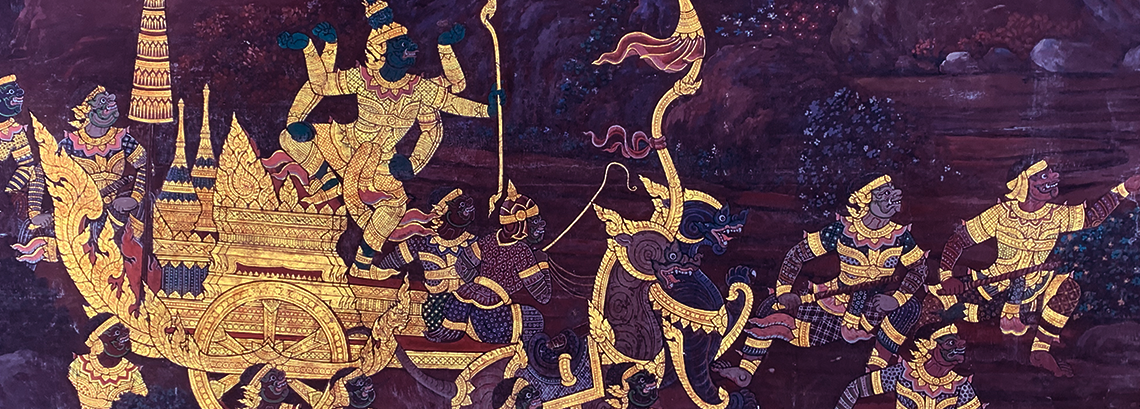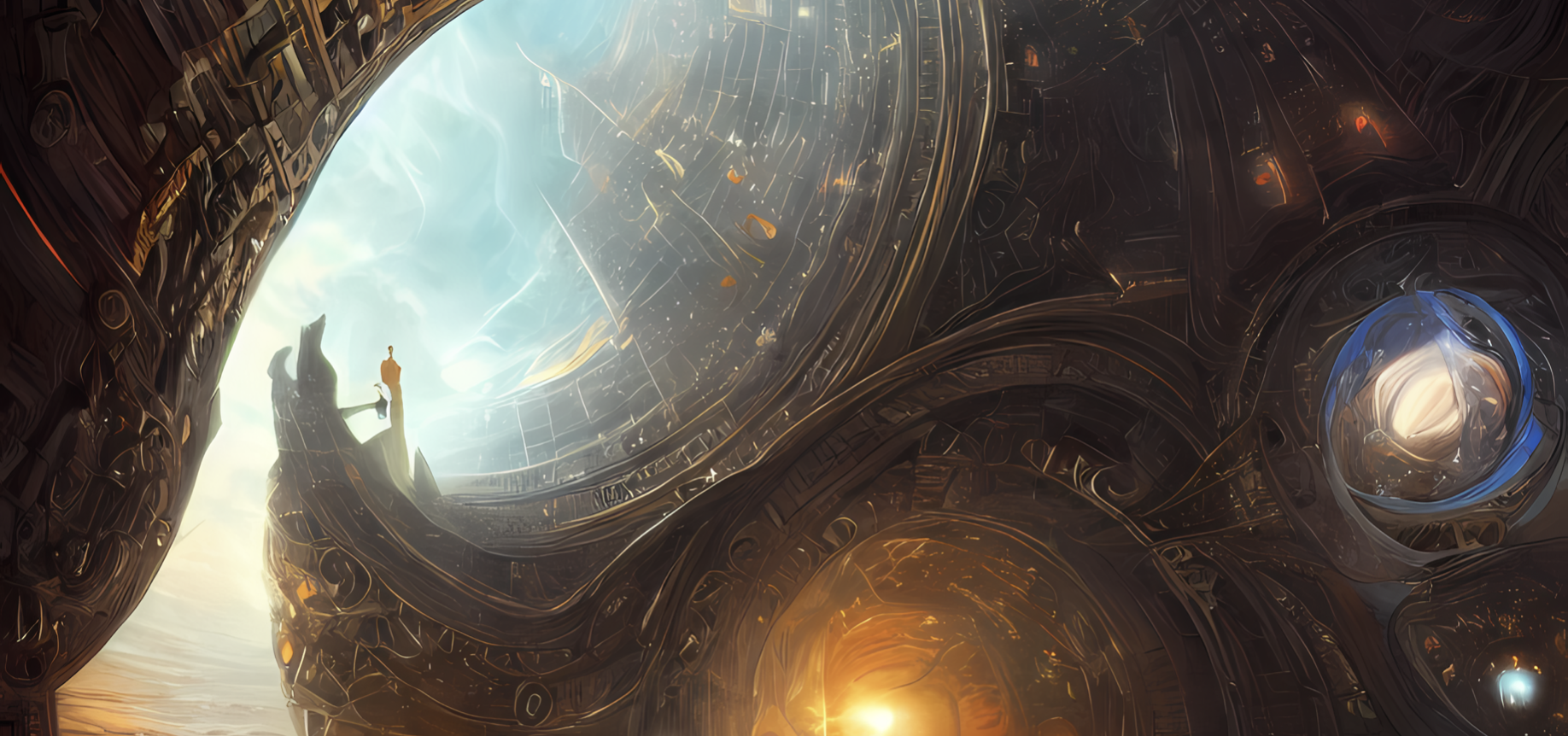Meditations on the Metaverse
The Metaverse will never be ONE thing. And some of today's 'truths' might not make so much sense years from now, as we meditate on where the Metaverse is headed.

I ended up in Asia. While I've been a nomad for years now, I didn't expect it.
Time has been compressed. A year ago I was planning my first trip to the region and since then I've bounced through a half dozen countries and now find myself in Thailand.
My journey into the Metaverse is one that travels through physical geography as much as virtual ones.
In April, I was dancing under the stars (one of my gods, Danny Tenaglia, spinning) with the crew from Pixelynx and Ryan from Open Meta, capping off a week discussing music in the Metaverse.
Later, I was in Singapore working with the brilliant team at Fragnova and we were mapping out an architecture for storytelling and world-building.
During that time, a half-dozen Metaverse standards bodies have popped up, dozens of projects have come and gone, and Zuckerberg has gone from prescient genius to stubborn dictator, tanking his share price along the road to Meta.
We've seen old themes from 20 years ago re-emerge (interoperability! avatar rigging!) and new themes that have started to bake-in.
Consider this, then, my meditations on a year of travel in the Metaverse.
It's Still Culture (and Story)
In August, 2021 I wrote that the Metaverse is mostly chaos. And I proposed that if we wanted to understand its evolution, we should look to story for guidance:
"The chaos that we're living in right now is the birthing sounds of stories trying to break free, which will result in new types of games, strange new forms of communal dancing or radical acts of art, all of which feed back on themselves, creating new pathways across worlds much like new neural circuits in the brain or new ways of thinking."
It built on themes I explored when examining the counterpoint of Fortnite and the Bored Apes, two projects/platforms that could be viewed as larger uber-narratives about the emerging Metaverse:
"(In) Fortnite, a large-scale world is the backdrop for complex stories that unfold on a pre-determined schedule of chapters and seasons. The stories get bigger and bolder...until other worlds are added, and we follow along, tracking the mythology of the Metaverse as it materializes around us.
At the level of Bored Apes, the Internet is rebuilt from the ground up with the primitives of story."
I had some strong pushback on my posts. Because they both proposed that the Metaverse was less in the achievement of a technical standard and more about story, community and cultural construction.
It's no different than what I wrote about 16 years ago: the best stories win. It doesn't matter how easily you can move between the worlds of the Metaverse, what matters is how portable your personal and communal narrative will be.
There Will Never Be A Metaverse
At some point, it's easier to give in.
I've attended a bunch of gaming, Metaverse and web3 conferences this past year and there must have been a hundred companies claiming to build "a Metaverse".
To be clear: you can't build one. You can build a world/universe/microverse/game that can eventually become part of THE Metaverse. But you can't build A Metaverse.
But there's no point arguing about it anymore. Because the Metaverse isn't even really a 'thing', it's an aspiration:
"And so whether large or small, the folks who use the word "Metaverse" are really sending out a signal: "I want to build something beautiful. I want it to be open to everyone. I want to make some money doing it but I want there to be enough money for everyone. I want it to be more human than the digital worlds that have come before. I want to solve hard problems. Let's build this together. You in?"
But regardless of the semantics or technical stack, I'm not even sure that a single, ubiquitous, standards-driven Metaverse is such a good idea. My travels have reminded me that we live in a world with vast disparities. Is it really such a good idea for everyone to be logging in to a single place?
Freedom From Ownership
As part of the Open Meta team, we like to say that the future is all about ownership. That instead of just 'renting' digital content from the platform silos (that skin in Fortnite, the gun in Call of Duty) we can actually own it.
The theory is that once the kids realize they're getting ripped off by paying the equivalent of a lease for digital content in their favourite game, they'll rise up and demand sovereignty over their digital assets.
But I view ownership through a more subtle lens. It isn't the fact of owning a digital good that matters, it's actually more important to be free of constraints.
To start, I'm not sure that most people will care that they are no longer leasing digital content (that skin you 'own' in Fortnite, for example). Our digital lives are increasingly ephemeral. The skin you won yesterday will be replaced with some newer adornment, the pet you have in one virtual world being replaced by a dragon in another.
Ownership feels important. But there is no such thing as true digital scarcity, even if your NFT collection had a super limited run. Because if I can't own YOUR PFP, I can buy another.
But for players, it's being free of constraints that matters. Today, I post on Facebook and I pay a hidden toll to the surveillance economy. Tomorrow, I will be free of the constraints that are imposed when the 'ownership' of the Internet isn't so deeply concentrated.
Interoperability Mostly Benefits Developers
There's a siren song called interoperability. The idea is that, for example, our avatars should be able to move freely between spaces in the Metaverse.
But like ownership, I think that the goal of interoperability is more subtle.
First, just because something is interoperable doesn't mean it should be portable. A gun in Call of Duty doesn't necessarily have a place in Otherside.
Interoperability mostly benefits developers. They can create an avatar, a land, an object, and the skills used to do so would apply everywhere.
Portability will only make sense in a few limited corners of the Metaverse - the chaotic social spaces, the Reddit or Discord of tomorrow, where you can show up wearing whatever bling you want, firing whatever weapon (with damage turned off).
But mostly players will be fine adopting the culture of whichever world they're in, happy to abandon their guns at the door.
Beyond the Creator Economy
Ownership. Interoperability. Openness.
If these things stand for anything it's a shift back to the Web 1.0 days, when content was king, when the creators mattered (regardless of whether you could monetize those creations - it would take Facebook and Twitter and Google to figure out how to make all the money).
With any luck, we're entering a new:old era. One where anyone can open a shop in the Metaverse, write a piece of lore, and submit a piece of fan art. In this era, the creators, fans and players are empowered instead of constrained; enriched instead of mined; celebrated instead of forgotten (or copy/pasted out of the frame).
The Metaverse Will Be Dynamic
I help to propogate the myth of the Metaverse whenever I mention Fortnite. It's the myth that the worlds will mostly look a lot like Ready, Player One.
But the latest advances in AI are a massive, mystical, awe-inspiring reminder that the machines themselves are becoming creators.
AI/ML will soon be able to generate entire worlds from a few keywords. And those worlds will be far more dynamic (and weird) than the current mostly static environments we see today.
I think this will bring us full circle back to the early days of virtual reality. Timothy Leary famously called VR "the psychedelics of the 90s" (and caused a lot of hand-wringing amongst the technologists, who just wanted to be taken seriously).
VR itself might not have been a psychedellic, but the way that the Metaverse is emerging, coupled with tools that will build on Stable Diffusion or Dall-E, we'll find ourselves entering worlds that are more surreal than we've experienced before, and that push the edges of cognitive coherence.

The World Itself Is Beautiful And Strange
Which brings me full-circle to being here in Asia.
Singapore felt like stepping into the future.

And Bangkok feels like...well, it feels like a special level of chaos, coupled with a deep current of Buddhism.
It reminds me that if the world itself is anything to go by, our endless capacity to create, destroy, shape, reinvent, and experience our world is unlikely to be smoothed over just because we find ourselves in the Metaverse.
The Metaverse is chaos. And the Metaverse is beautiful and light. Because it is, today, driven by our large, chaotic, beautiful experiment in being human.
I'd love to hear your own meditations and random thoughts on the Metaverse (or travel, or humanity!)
Email me at doug@bureauofbrightideas.com or message me on Twitter.
Let's start a conversation.